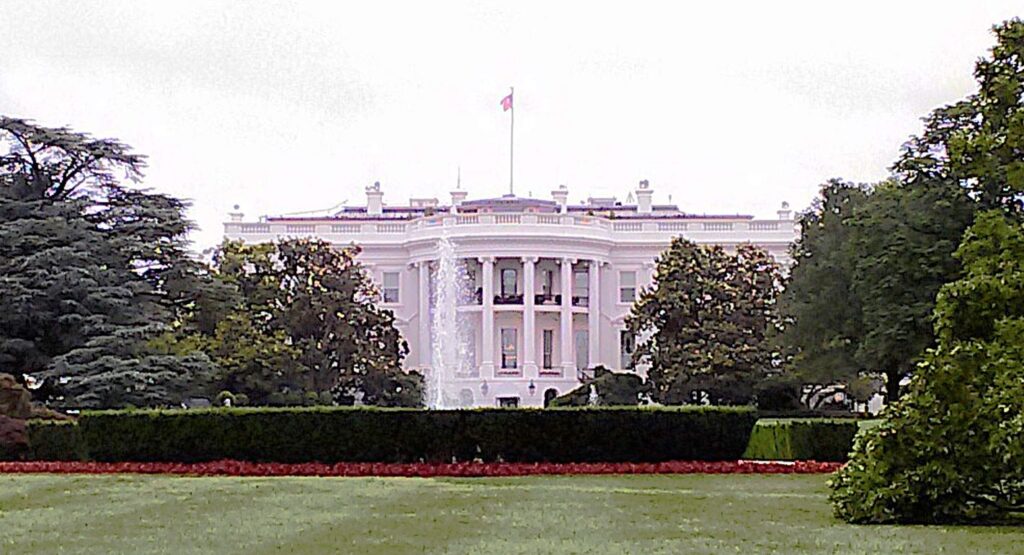 米国バイデン政権は、2023年12月7日に発表した「競争の促進による医療と医薬品の価格引下げを目指す新たな方針」の中で、医薬品の価格を抑えるために、バイ・ドール法に基づいて政府の資金援助を受けて研究開発された特許技術に対して介入権(March-in rights)を行使する可能性を示唆しています。
米国バイデン政権は、2023年12月7日に発表した「競争の促進による医療と医薬品の価格引下げを目指す新たな方針」の中で、医薬品の価格を抑えるために、バイ・ドール法に基づいて政府の資金援助を受けて研究開発された特許技術に対して介入権(March-in rights)を行使する可能性を示唆しています。
この発表と同日、米国商務省に属する政府機関である米国標準技術研究所(NIST)から「介入権の行使に関するガイダンス枠組み案」が公表され、2024年2月6日までパブリックコメントの募集が行われましたが、このバイデン政権の方針及びガイダンス枠組み案は各界から多くの批判を浴びています。
本記事では、米国特許法が定める介入権、ガイダンス枠組み案の内容及び各界からの反応について紹介します。
1.介入権(March-in rights)を行使する薬価引下施策の提案
米国バイデン政権は、「競争の促進による医療と医薬品の価格引下げを目指す新たな方針(New Actions to Lower Health Care and Prescription Drug Costs by Promoting Competition)」を2023年12月7日に発表しました。
- 2023.12.07 THE WHITE HOUSE website: FACT SHEET: Biden-Harris Administration Announces New Actions to Lower Health Care and Prescription Drug Costs by Promoting Competition
この方針では、競争促進を重視し、医薬品の価格の引下げのための施策や医療市場での不正な行為を防止する施策が提案されています。
具体的には、医薬品の価格を抑えるために、バイ・ドール法(Bayh-Dole Act)に基づいて、政府の資金援助を受けて研究開発された特許技術に対して介入権(March-in rights)を行使する可能性が示唆されました。
“Today, the Biden-Harris Administration announced a new action to support lowering prescription drug costs and increase Americans’ access to life-saving medications:
Promoting equitable access to lower-priced taxpayer-funded drugs. Taxpayers have spent hundreds of billions of dollars on research catalyzing the discovery and development of new prescription drugs. The Biden-Harris Administration believes taxpayer-funded drugs and other taxpayer-funded inventions should be available and affordable to the public. When an invention is made using taxpayer funds, under certain circumstances march-in authority under the Bayh-Dole Act enables the federal government to license the invention to another party. The prior Administration proposed a rule preventing the government from exercising this authority on the basis of high price alone. The Biden-Harris Administration decided not to finalize that proposal earlier this year, consistent with President Biden’s Executive Order on Promoting Competition in the American Economy. Today, the Department of Commerce (DOC) and HHS released a proposed framework for agencies on the exercise of march-in rights that specifies for the first time that price can be a factor in determining that a drug or other taxpayer-funded invention is not accessible to the public. DOC and HHS invite public input on how this framework can promote access to taxpayer-funded inventions, including treatments for patients, while promoting innovation.”
このバイデン政権の方針発表の約9か月前の2023年3月21日、米国保健福祉省(HHS)と商務省(DOC)は、研究成果の商業化を促進し、連邦政府が資金提供した技術が製品化される可能性を最大化し、米国民の広範な利益に資するバイ・ドール法に規定された介入権を見直すため、政府全体のアプローチを追求する取組みを進めていくこと、バイ・ドール法に関する省庁間作業部会が、介入条項の実施のための枠組みを作成し、各省庁の評価において価格を含む様々な要因が考慮される可能性がある場合の判断のための指針となる基準とプロセスを明確にしていくことを発表していました。
- 2023.03.21 HSS press release: HHS and DOC Announce Plan to Review March-In Authority
2.介入権(March-in rights/マーチ・イン・ライト)とは
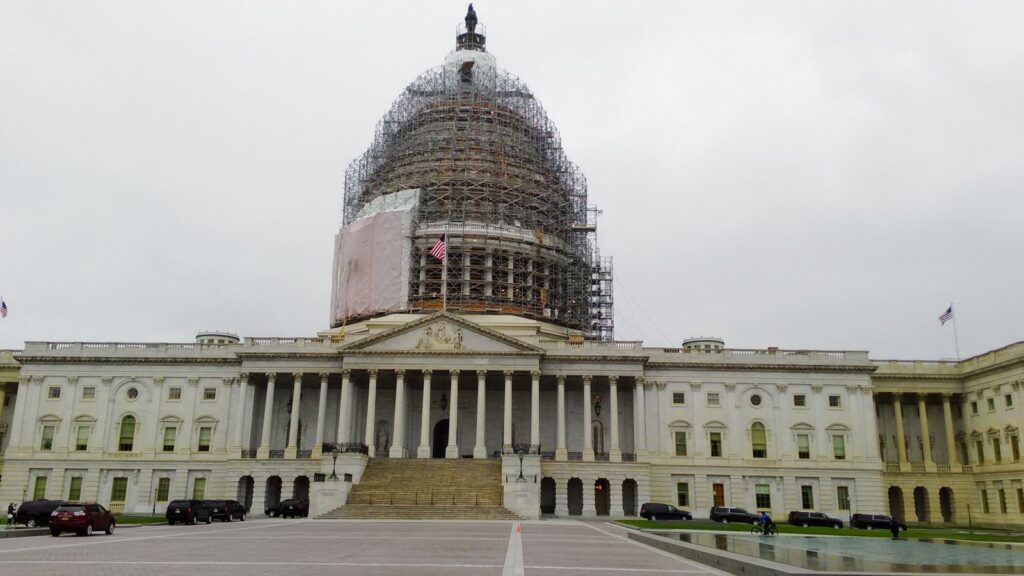 1980年に制定されたバイ・ドール法(Bayh-Dole Act)は、連邦政府の資金を受けて行われた大学等での研究から生まれた発明が社会に広く利益をもたらすことを確実にすることを目的として、その発明について大学等が所有権を保持できるようにする法律です(35 U.S.C. §200–212)。
1980年に制定されたバイ・ドール法(Bayh-Dole Act)は、連邦政府の資金を受けて行われた大学等での研究から生まれた発明が社会に広く利益をもたらすことを確実にすることを目的として、その発明について大学等が所有権を保持できるようにする法律です(35 U.S.C. §200–212)。
この法律が導入されるまでは、連邦政府から研究資金を受けて大学等で生まれた発明は、連邦政府がその権利者であり、大学等にはその権利が無かったため、大学等は発明を生み出して商業化しようというモチベーションは無く、連邦政府は権利者であるのにその発明の生かし方も分からないという状況だったわけです。
バイ・ドール法は、連邦政府ではなく大学等に所有権を保持させることにより、発明の商業化を促進し、新しい技術の開発と普及を支援するために重要な役割を果たしています。
バイ・ドール法により、特許を受ける権利を保持した大学が、その権利化とライセンス活動に取り組んだ結果、多額のライセンス収入を得て、その資金を次の研究活動に投入し、また新たな発明を生み出す・・・というイノベーションとライセンス収入の好循環の基盤を築いたことは周知の事実でしょう。
一方、この法律は、発明が公共の利益に役立つように、特定の場合に限り、連邦政府機関にその発明に係る権利を留保することも認めています。
これには、発明が適切に利用されていない場合に、連邦政府機関がライセンスを他者に与えることができる「介入権(March-in rights/マーチ・イン・ライト)」が含まれます。
米国特許法203条(35 U.S.C. §203)は、対象発明が行われる基になった資金供給契約の当事者である連邦政府機関が、以下の場合に、特許権者に対して第三者又は連邦政府自身にライセンスを許諾するよう求めることができると定めています(翻訳文は特許庁ウエブサイト参照)。
(1)特許権者が相当期間にわたり、当該特許発明を実用化するための効果的な措置を取らなかった場合
(2)介入権の行使が衛生上又は安全上の理由から必要な場合
(3)公共の使用に関する規則により求められる場合
(4)米国内で使用または販売する独占ライセンスの合意に違反している場合
35 U.S.C. 203 March-in rights.
(a) With respect to any subject invention in which a small business firm or nonprofit organization has acquired title under this chapter, the Federal agency under whose funding agreement the subject invention was made shall have the right, in accordance with such procedures as are provided in regulations promulgated hereunder, to require the contractor, an assignee, or exclusive licensee of a subject invention to grant a nonexclusive, partially exclusive, or exclusive license in any field of use to a responsible applicant or applicants, upon terms that are reasonable under the circumstances, and if the contractor, assignee, or exclusive licensee refuses such request, to grant such a license itself, if the Federal agency determines that such —
(1) action is necessary because the contractor or assignee has not taken, or is not expected to take within a reasonable time, effective steps to achieve practical application of the subject invention in such field of use;
(2) action is necessary to alleviate health or safety needs which are not reasonably satisfied by the contractor, assignee, or their licensees;
(3) action is necessary to meet requirements for public use specified by Federal regulations and such requirements are not reasonably satisfied by the contractor, assignee, or licensees;
or
(4) action is necessary because the agreement required by section 204 has not been obtained or waived or because a licensee of the exclusive right to use or sell any subject invention in the United States is in breach of its agreement obtained pursuant to section 204.
(b) A determination pursuant to this section or section 202(b)(4) shall not be subject to chapter 71 of title 41. An administrative appeals procedure shall be established by regulations promulgated in accordance with section 206. Additionally, any contractor, inventor, assignee, or exclusive licensee adversely affected by a determination under this section may, at any time within sixty days after the determination is issued, file a petition in the United States Court of Federal Claims, which shall have jurisdiction to determine the appeal on the record and to affirm, reverse, remand or modify, as appropriate, the determination of the Federal agency. In cases described in paragraphs (1) and (3) of subsection (a), the agency’s determination shall be held in abeyance pending the exhaustion of appeals or petitions filed under the preceding sentence.
HHS、国立衛生研究所(NIH)、およびその他の機関は、介入権手続きを開始するよう何度か請願されていますが、今日までこの権限を行使していません。
最近では、NIHがアステラス製薬の前立腺癌治療薬Xtandi®の介入権手続きを開始する請願を以下のような理由により却下しました。
“NIH’s analyses in response to the petition request have found Xtandi to be widely available to the public on the market. In addition, given the remaining patent life and the lengthy administrative process involved for a march-in proceeding, NIH does not believe that use of the march-in authority would be an effective means of lowering the price of the drug. For these reasons, NIH has determined that initiation of a march-in proceeding is not warranted in this case.”
申立人はこの決定を不服としてHHSに上訴しましたが、2024年2月5日、HHSは、「Xtandiの場合、NIHは関連する知的財産の評価と4つの法定基準の適用可能性を含め、バイ・ドール法の方針と目的に合致した方法で申立書を徹底的に検討した」と述べて、最終的には、NIHの決定に同意すると判断しました。
しかし、HHSは、その書簡にて、最近提案された「介入権の行使に関するガイダンス枠組み」(後述)について言及し、「介入権の行使を検討する際に、価格設定がどのような要因になり得るかを評価する必要がある」と述べて、「商務省(DOC)と協力して、バイ・ドール法に規定されている介入権の行使を見直すことを約束する」と述べました。
参考:
- https://www.techtransfer.nih.gov/sites/default/files/documents/pdfs/NIH_Decision_Xtandi_March-In_Request(2023)
- US Declines to Force Lower Price on Cancer Drug Xtandi, Reuters (March 23, 20232:29 AM GMT+9), https://www.reuters.com/business/healthcare-pharmaceuticals/us-declines-force-lower-price-cancer-drug-xtandi-2023-03-21/
- HHS Denies Appeal of Xtandi March-In Petition as Comments Close on Proposed Framework, IPWatchdog.com, EILEEN MCDERMOTT (FEBRUARY 6, 2024, 04:15 PM), https://ipwatchdog.com/2024/02/06/hhs-denies-appeal-xtandi-march-petition-comments-close-proposed-framework/id=172966/
3.介入権の行使に関するガイダンス枠組み案
バイデン政権による「競争の促進による医療と医薬品の価格引下げを目指す新たな方針」の発表と同日、米国商務省(DOC)に属する政府機関である米国標準技術研究所(National Institute of Standards and Technology: NIST)が「介入権の行使に関するガイダンス枠組み案(Draft Interagency Guidance Framework for Considering the Exercise of March-In Rights)」を公表し、2024年2月6日までパブリックコメントを募集しました。
- 2023.12.07 NIST news: NIST Releases for Public Comment Draft Guidance on March-In Rights
- 2023.12.08 Federal Register: Request for Information Regarding the Draft Interagency Guidance Framework for Considering the Exercise of March-In Rights
ガイダンス枠組み案では、連邦政府機関が介入権の行使を検討する際には、(1)問題となっている発明にバイ・ドール法が適用されるかどうか、(2)介入権を行使するための法定基準がその状況下で適用されるかどうか、(3)介入権の行使がバイ・ドール法の政策目的と一致するかどうか、という3つの包括的な問いが評価されなければならないと説明されており、また、いくつかの仮想シナリオを挙げて、介入権の行使を検討する際のポイント等についても解説されています。
仮想シナリオのうち、医薬品分野における発明に関連するシナリオ1、4、8の設定(日本語仮訳)を以下に紹介します。介入権が行使されるかどうかのポイントの説明はぜひ本文をご参照ください。
シナリオ1
あるバイオテクノロジー企業が、自己免疫性皮膚疾患の治療法を開発するため、米国政府出資の大学と提携した。同社は、同大学が所有する政府出資特許の独占ライセンスを取得した。この特許は、乾癬に対する前臨床試験で有望視されている新規化合物をクレームしている。同社はまた別の乾癬治療薬も別途開発しており、最近FDAの承認を得たその2つ目の治療薬は、政府の支援を受けずに同社が単独で開発したものである。同社は、その2つ目の治療薬でFDAの認可を得た後、政府出資の大学が発明した特許化合物の開発をすべて中止したようである。ある第二の企業は、大学所有の特許のライセンスを両者に求めたが拒否されたため、政府資金提供機関に介入権の行使を要請し、大学に対して大学特許のライセンス付与を要求している。
シナリオ4
政府から多額の資金援助を受けている小規模の新興製薬会社が、ある希少疾患の唯一の治療薬となるモノクローナル抗体を開発した。その会社は、抗体、その使用方法、製造方法をカバーするすべての特許を保有しており、それらの特許の各々には、規制で義務付けられているように、政府からの資金提供を認める条項が含まれている。この新興企業はすべての製造をカリフォルニア州の工場で行っているが、激しい降雨により製造工場がかなりの洪水に見舞われた。工場は大幅な修理が必要で、同社がいつ生産を再開できるかは不透明だ。生産が再開できたとしても、抗体のバッチ製造が完了するまでには修理後4カ月を要する。希少疾患の患者団体は、介入権を行使してこの抗体の製造と使用に必要なすべての特許のライセンスを発行するよう政府に要請している。
シナリオ8
政府出資のある大学は、長年にわたる広範かつ的を絞ったマーケティング活動を経て、医薬品開発および独自医薬品の製造に積極的なスイスの大手製薬会社との間で、アルツハイマー病の治療に有効であることが第III相臨床試験で実証された新規化合物の独占的ライセンスを締結した。この新規化合物は、開発の初期段階において政府資金が投入されていた。独占実施権の条件には、バイ・ドール規制と、政府によって放棄されない限り米国での製造要件は言及されていなかった。独占的ライセンシーは、FDAの承認に先立ち、スイスの既存施設で本化合物の原薬(API)の限定数量の製造を開始した。このスイス企業は米国内に製造施設を有していない。政府出資大学は資金提供機関に対して、独占的ライセンス条件に不備があることを自己申告し、原薬の製造状況を報告した。政府出資大学は権利放棄を要求していない。政府機関の責任者は、介入権行使の可能性について質問している。
FTCからのコメント
2024年2月6日、連邦取引委員会(FTC)は、このガイダンス枠組み案についてコメントを提出しました。
そのコメントにおいて、FTCは、バイ・ドール法に関する省庁間作業部会が、納税者の資金で開発された医薬品を米国民に高値で販売する企業に対する重要な牽制として、介入権を活性化する努力を行っていることを称賛して、高価格を根拠とする介入権が可能であることを規定するなど、介入権に対する広範かつ柔軟なアプローチへの支持を表明しました。
- 2024.02.06 FTC press release: FTC Submits Comment on March-In Rights to Promote Efforts to Lower Drug Prices
- FTCのコメント: https://www.ftc.gov/system/files/ftc_gov/pdf/2024.02.06March-InRightsComment.pdf
4.各界から批判の声
このバイデン政権の方針は、各界から鋭い批判を浴びています。
きわめて多くのコメントが提出されていますが、例えば、以下の製薬産業に関わるステークホルダーからのコメントもあります。
PhRMA
“The Draft Framework contradicts the purposes of Bayh-Dole and could well reverse the gains we have seen in innovation as a result of Bayh-Dole, causing reduced investment in public-private partnerships and minimal commercialization of federally funded inventions. The negative effects of the Draft Framework could have a ripple effect throughout the innovation ecosystem, ultimately reducing investment in small biotech companies and in the development of university inventions, and jeopardizing future benefits to the U.S. economy” (URL: https://www.regulations.gov/comment/NIST-2023-0008-0633)
BIO
“By diminishing private sector interest in collaborations to develop federally funded inventions, the draft framework could undermine a variety of federal innovation initiatives that depend on private sector activity in development of federally funded inventions, such as the CHIPS and Science Act, the Small Business Innovation Research (SBIR) program, and the Small Business Technology Transfer (STTR) program. All of those programs depend on robust interest in and participation by the private sector.” (URL: https://www.regulations.gov/comment/NIST-2023-0008-0780)
The United States Chamber of Commerce and twelve other organizations and individuals
“The proposed guidance constitutes a confiscation of property rights that would chill private research and development funding; The actions contemplated by the proposed guidance are unlawful and directly contradict both the plan text and the spirit of the Bayh-Dole Act; If implemented, the proposed guidance would radically alter and undermine America’s innovation ecosystem, thwarting American technological leadership and the ability of Americans to access the next generation of innovative technologies; and Separate from the clear, unambiguous illegality of the proposed guidance, the entire process that led to its issuance lacked transparency, public input, and engagement.” (URL: https://www.regulations.gov/comment/NIST-2023-0008-0769)
The Bayh-Dole Coalition
”Because the law does not mention pricing as a march-in trigger, NIST lacks the authority to direct federal agencies “to further assess whether march-in is warranted” when “the contractor or licensee has commercialized the product, but the price or other terms at which the product is offered to the public are not reasonable.”” (URL: https://www.regulations.gov/comment/NIST-2023-0008-0497)
JPMA
“Under such circumstances, the exercise of March-In Rights, even if based on this Framework, is up to the discretion of the government, making business predictability of companies more difficult. The easy exercise of March-In Rights will in turn defer the research and development initiatives of companies and may suppress innovation activities in the U.S.” (https://www.regulations.gov/comment/NIST-2023-0008-0751)
Astellas Pharma US, Inc.
“Astellas strongly opposes including price as a factor in all of the circumstances outlined above for the following reasons:
• Considering price as a march-in factor is inconsistent with the text of the BayhDole Act and Congressional intent and prior National Institutes of Health (NIH) decisions interpreting the Act.
• If agencies were to consider price when deciding whether to exercise march-in rights, such an approach would have a chilling effect on collaboration and innovation, thus adversely affecting both the U.S. economy – including Americans’ jobs – and the health of many Americans who rely on advancements in medical technology to address their unmet health needs” (https://www.regulations.gov/comment/NIST-2023-0008-0680)
NISTに提出された他のパブリックコメントを見ても、この枠組み案に反対する声が広がっていることがわかります。
多くのステークホルダーが、介入権を価格統制に利用しようとするバイデン政権の取組みがもたらすであろう影響について重大な懸念を表明しています。
産業界からだけでなく、多くの大学、与野党議員、元政府関係者等からも、この提案が成立して医薬品の価格に対して介入権を行使することが奨励されることとなれば、研究開発パートナーとしての大学や連邦研究機関への信頼が低下し、民間企業からの投資インセンティブが損なわれ、米国の技術革新に深刻な支障をきたすことになると指摘して、バイ・ドール法の本来の趣旨を逸脱した介入権の誤った利用を進めようとしているバイデン政権に警告を発する趣旨のコメントを提出しているようです。
- 2024.02.07 AAU (The Association of American Universities) press release: AAU Submits Comment Letter on NIST Framework on March-In Rights “The letter expresses the importance of the Bayh-Dole Act in developing the robust U.S. innovation economy. AAU urges NIST to reject this framework and support public policies that enable public-private collaborations and maintain the integrity of the Bayh-Dole framework.”
- 2024.02.02 AAMC (The Association of American Medical Colleges) press release: AAMC Asks Biden Administration to Withdraw Proposed “March-in” Framework “the association stated that the proposed framework would be ineffective as a price control for drugs or other products, but would make it more difficult for academic medical centers to license inventions and collaborate with industry, inhibiting future innovation.”
- 2024.02.22 BIO: Congressional letter to the President on march-in rights “A letter signed by 28 members of Congress to President Biden urging reconsideration of a NIST proposal to use the Bayh-Dole Act to “march in” and control drug prices”
- 2024.02.06 C4IP Comments RE: Draft Interagency Guidance Framework for Considering the Exercise of March-In Rights, 2/6/2024 “C4IP has serious concerns about how these draft guidelines, if implemented, will impact the innovation ecosystem by undermining a singularly successful law — the Bayh-Dole Act”
- 2024.02.02: C4IP Press Release: Former Commerce Department Leaders Urge Biden to Withdraw March-In Proposal, 2/2/2024 “The authors of this letter include former Secretaries of Commerce, former heads of the
U.S. Patent and Trademark Office (USPTO), and former heads of the National Institute of Standards and Technology (NIST)”

たとえば、COVID-19に対するワクチンや治療薬を世の中に早期に送り届けることができたのは、成功確率が極めて低い挑戦にも敢えて膨大な投資ができるインセンティブを与える知的財産権の獲得とそのライセンスという法的枠組みが、産官学様々な関係者の協業を可能にして研究開発推進の原動力となったことにあります。
この枠組み案が成立して連邦政府に価格設定という生殺与奪の権を握られて、研究開発に投入した投資回収の機会が思うようにできないとなれば、製薬企業は、連邦政府から資金援助を受けた共同研究や政府資金援助を受けて生まれた発明に関して大学等からのライセンスを受けることに対して慎重にならざるを得ないでしょう(連邦政府に非独占ライセンスを与えることとは次元が異なります)。
これは製薬産業だけの問題ではありません。
価格抑制をこのようなアプローチで実現しようとすれば、米国のいわゆるエコシステムとして発展してきた大学等との連携による研究開発の推進にブレーキをかけてしまい、長期的視点にたてば、産業界全体にわたる停滞、ひいては人類の利益の損失につながりかねないと思われます。
皆さんはどのように思われますか。

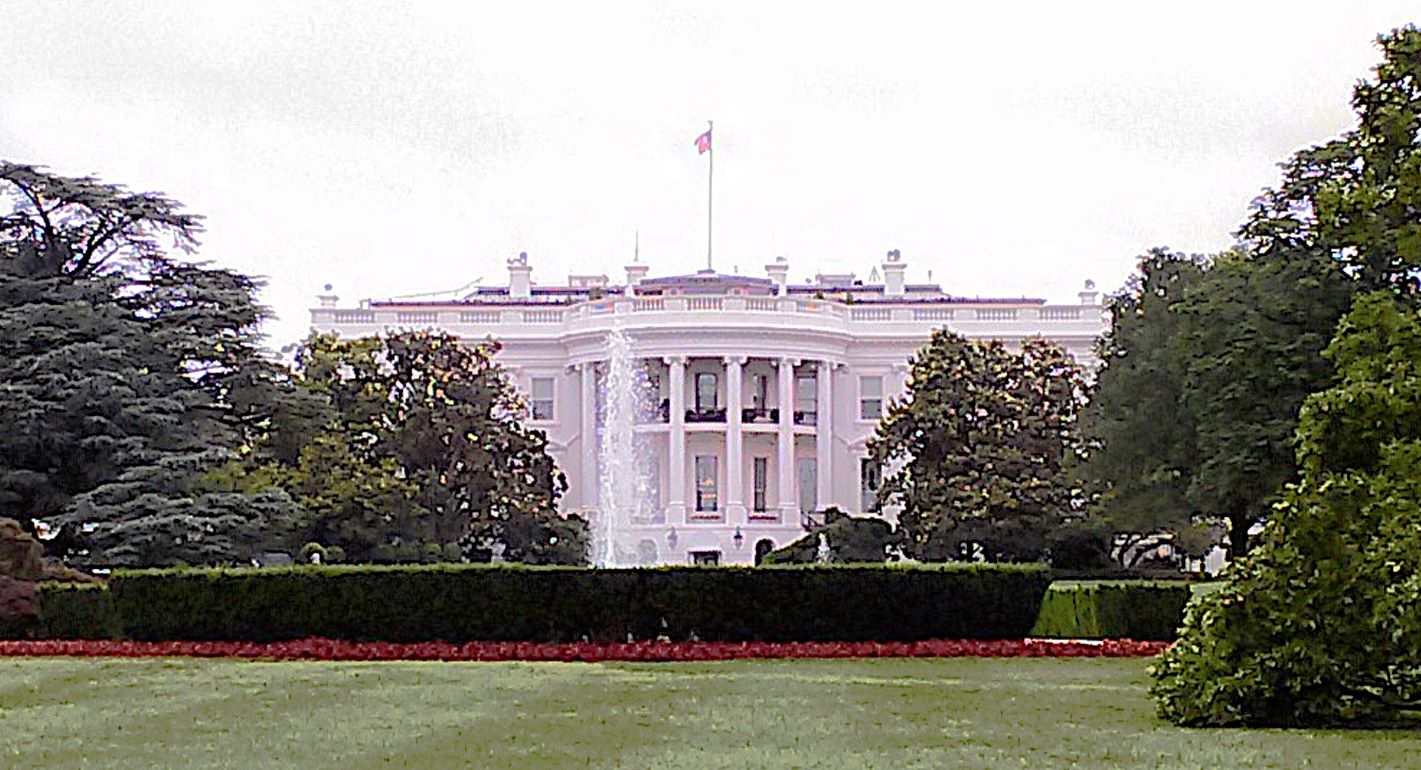
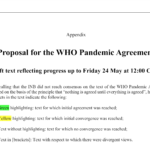
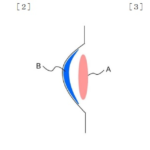
コメント